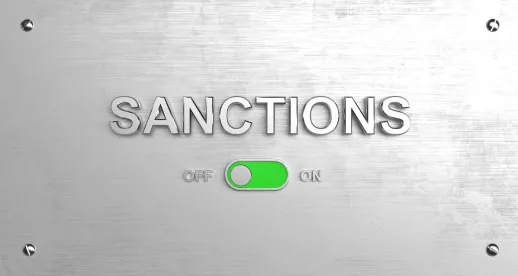On Feb. 20, 2023, Dutch Minister of Foreign Affairs Wopke Hoekstra gave a speech titled “Building a secure European future” at the College of Europe in Bruges, Belgium where he made a plea to “(…) sail to the next horizon where sanctions are concerned.” The Dutch Foreign Minister said European Union (EU) “(…) sanctions are hurting the Russians like hell (…)” but at the same time the measures “(…) are being evaded on a massive scale.” Hoekstra believes this is in part because the EU has too little capacity to analyze, coordinate, and promote the sanctions. However, arguably, there is also a lack of capacity at the EU Member-State level to enforce sanctions.
Against this background the Dutch Foreign Minister proposed to set up a sanctions headquarters in Brussels, Belgium, i.e., a novel watchdog or body to tackle the circumvention of EU sanctions. Such a body might represent the nearest EU equivalent to the U.S. Office of Foreign Assets Control (OFAC). OFAC both implements and enforces U.S. economic sanctions (issuing regulations, licenses, and directives, as well as enforcing through issuing administrative subpoenas, civil and administrative monetary penalties, and making criminal referrals to the U.S. Department of Justice). In Hoekstra’s words:
“A place where [EU] Member States can pool information and resources on effectiveness and evasion. Where we do much more to fight circumvention by third countries. This new HQ would establish a watch list of sectors and trade flows with a high circumvention risk. Companies will be obliged to include end-use clauses in their contracts, so that their products don’t end up in the Russian war machine. And the EU should bring down the full force of its collective economic strength and criminal justice systems on those who assist in sanctions evasion. By naming, shaming, sanctioning, and prosecuting them.”
The Dutch Foreign Minister’s proposal – which is also set out in a separate non-paper – apparently is backed and supported by some 10 or so EU Member States, including Germany, France, Italy, and Spain.
Additionally, on Feb. 23, 2023, the press reported the international Group of Seven (G7) is set to create a new tool to coordinate their enforcement of existing sanctions against the Russian Federation (Russia). The aim of the tool, tentatively called the Enforcement Coordination Mechanism, would be to bolster information-sharing and other enforcement actions.
Background
Like other Members of the G7, the EU has adopted throughout 2022 many economic and other sanctions to target Russia’s economy and thwart its ability to continue with its aggression against Ukraine. Nevertheless, currently EU Member States have different definitions of what constitutes a breach of EU sanctions, and what penalties must be applied in case of a breach. This could lead to different degrees of enforcement and risk circumvention of EU sanctions.
As we have reported previously, on Nov. 28, 2022, the Council of the EU adopted a decision to add the violation of restrictive measures to the list of so-called “EU crimes” set out in the Treaty on the Functioning of the EU, which would uniformly criminalize sanctions violations across EU Member States. This proposal still needs the backing of EU Member States, which have traditionally been cautious about reforms that require amendments to their national criminal laws.
Next steps
The decision on when and how to enforce EU sanctions currently lies with individual EU Member States, who also decide on the introduction of the EU’s restrictive measures by unanimity. As such, the Dutch Foreign Minister’s proposal requires the backing and support of more EU Member States. If adopted, the new proposed body could send cases directly to the European Public Prosecutor’s Office (EPPO), assuming the separate “EU crimes” legislative piece was also adopted.
Notably, the Dutch Foreign Minister’s proposal appears to suggest a stronger targeting of third countries, which are not aligned with the EU’s sanctions against Russia or help in their circumvention (e.g., Turkey, China, etc.).
Whether or not an EU sanctions oversight body is established, the Dutch proposal signals the current appetite for enhanced multilateral coordination on economic sanctions implementation and tougher, more consistent enforcement of economic sanctions violations. The G7’s proposed Enforcement Coordination Mechanism points in the same direction.




 />i
/>i

